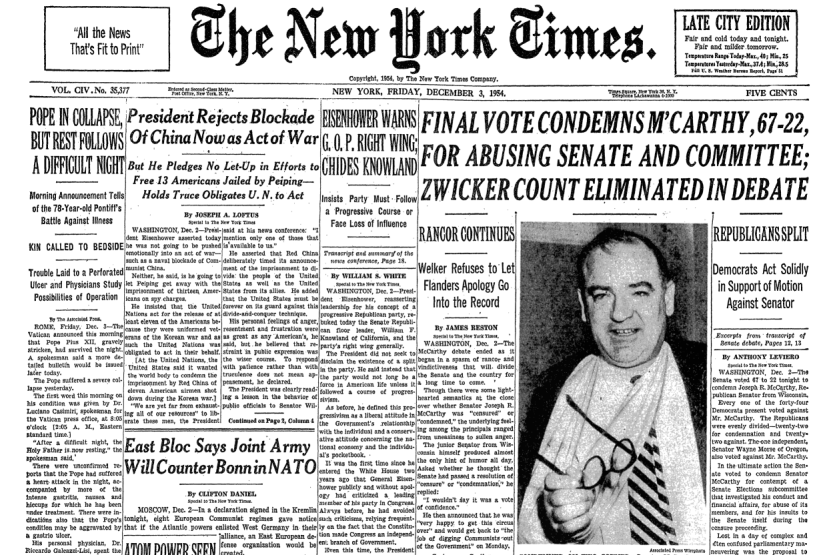Table of Contents
- Introduction
- Burning Books 213 B.C.
- Persecuting Philosophers
- Banned Books & Bible
- Books lost forever
- Inquisition Censorship
- Index Librorum Prohibitorium
- Copernicus & Galileo
- Darkness in Enlightenment
- Revolution & Banned Books
- Colonialism & Book Bans
- New Nation Censorship
- Nazi Germany Book Burning
- USSR Banned Books
- McCarthyism Book Banning
- 21st Century Book Bans
- Banned Books Battles
- Digital Age Book Banning
- World Wide Book Banning
- Book Banning is Bad
- The Future of Book Banning
- Looking Back in History
- Discover New Worlds
McCarthyism Bans Books to Fight Commies

McCarthyism Put Books on the "No-Read" List
Did you know that the U.S. had its own moment when tons of books were banned? Yep, and it wasn’t that long ago! This all went down in the 1950s, a time called McCarthyism. Let’s dive in and learn more!
So, picture this: It’s the early 1950s, and there’s this big tension between the U.S. and the Soviet Union called the Cold War. As this is happening, many Americans start getting super scared of communism. Senator Joseph McCarthy was right in the thick of it, accusing loads of people of being communists or being friends with them. This caused a huge panic all over the country, called the ‘Red Scare.’ And guess what? Many books and their authors got caught in this scary wave.
Books that even hinted at supporting communism? Banned! And we’re not just talking about history or politics books. We’re talking novels, plays, and even poems. Big-name authors like Arthur Miller got into hot water. His play “The Crucible“? Many thought it was throwing shade at McCarthyism. Dashiell Hammett’s books? Gone from libraries because he had some progressive beliefs.
And oh boy, schoolbooks weren’t safe. Some schools said “nope” to Robin Hood because, you know, he took from the rich and gave to the poor—a bit too communist for some. Dr. Seuss, everyone’s favorite, got side-eyed for “The Lorax.” Why? People thought he was being too pro-environment and not so kind to industries.
But here’s the cool part: Not everyone was down with this banning spree. Authors, publishers, librarians, and regular folks stood up against all this censorship. They believed everyone should have the freedom to read, think, and chat about even the wildest ideas.
One super cool act of defiance was Ray Bradbury’s “Fahrenheit 451.” It’s all about a future where books get the ultimate book ban—literally, they’re burned. Released smack in the middle of the McCarthy craziness, it shouted loud and clear: “Let’s stop censoring and start thinking!”